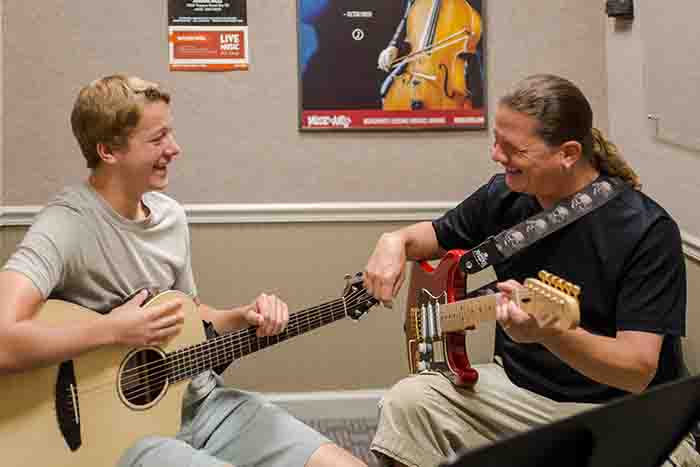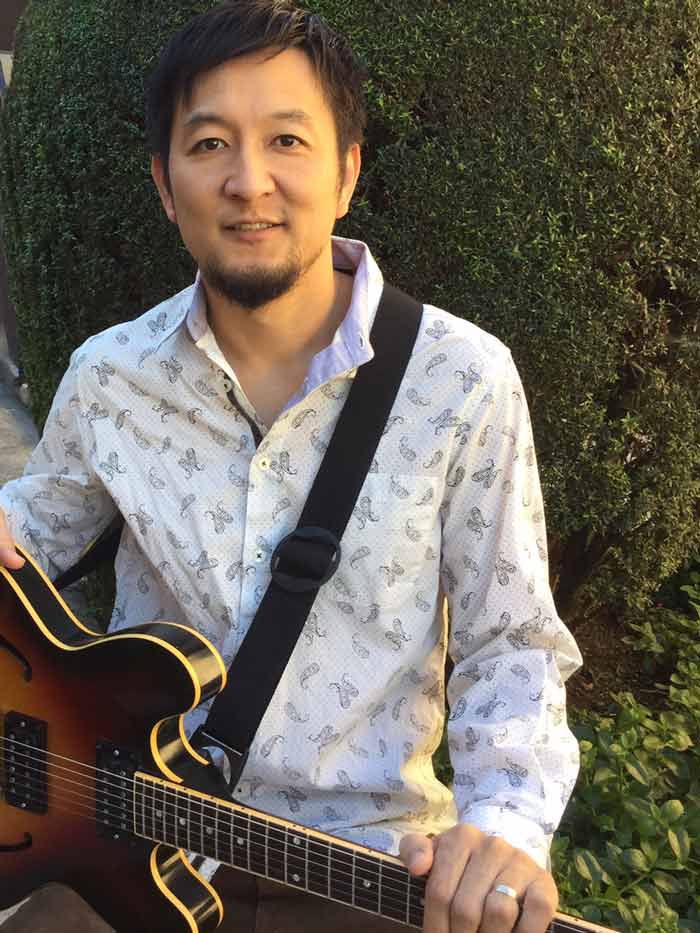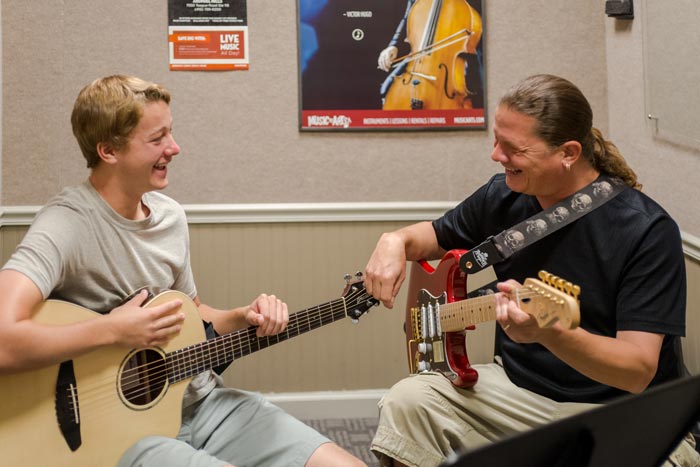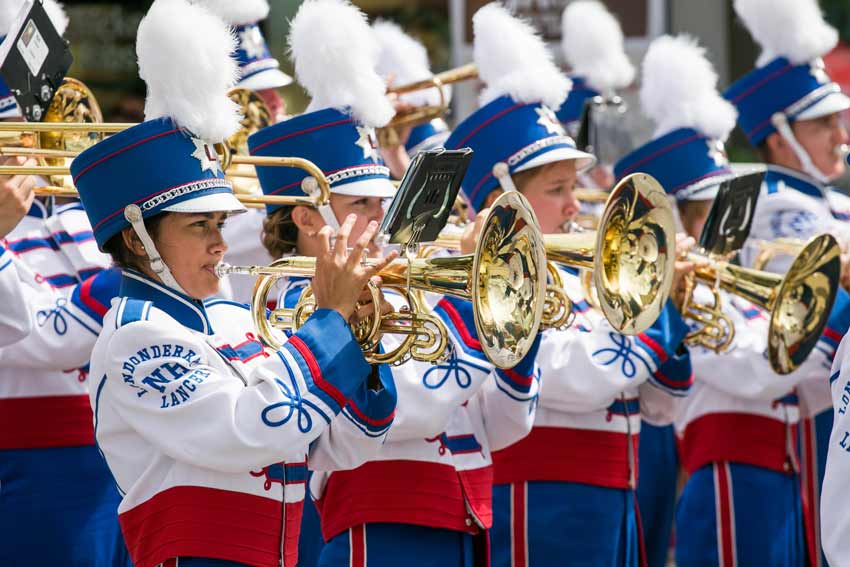May 13, 2015
3 Ways to Score Continuing Education Credits


What makes a great music teacher stand apart from others in his or her field? Of course, the teacher has risen to a level of aptness with hands-on experience that makes them well-rounded and widely respected in his/her field. But great teachers don’t stop there. In fact, when it comes to learning — they never stop. After all, research in the music field is ever-growing, and pedagogy and brain research is always changing. Great teachers respond to and are proactive about engaging in these changes through furthering their professional development.
If you are looking to progress in your professional development and possibly earn a higher salary, it’s important to look into continuing education credits, also called Continuing Education Units, or CEUs. A CEU is a nationally recognized unit of measurement for noncredit continuing education programs; it is a unit of credit equal to ten hours of participation in an accredited program designed for professionals with certificates or licenses to practice various professions. It is designed to document valid learning experiences that differ from courses for which academic credits are traditionally awarded. This includes time you are studying online, participating in group chats or discussions, doing homework, reading, research and class assignments.
Many school districts reward continuing education credits and CEUs with a higher salary, and ultimately an accumulation of credits can lead to a terminal degree (Master’s, PhD, etc). Meanwhile, it is always healthy to learn new things and pursue ways to further our craft of teaching. Every district is different as to how many development credits/hours they require each year, so teachers should contact their Supervisor/Principal/Board of Education for their regulations regarding professional development.
Most colleges, universities, and educational associations offer official CEUs for taking a course or participating in a state or national conference. It’s important to look online or call the school or organization and ask them if they are accredited to offer official CEUs. Ultimately, it is up to the educator to align CEUs, hours of study, and credits to their school district’s policies and their individual educational goals.
In short, each state has different requirements for Continuing Education and recertification points. Check with your district on the policy that is specific to your state.
Whatever the reasons for your pursuit of education credits, here are three ways to achieve the next step in your professional development:
Online Courses through a University
Online courses are one of the most popular ways to accumulate credits. With online courses, students receive high-quality instruction and innovative programming for musicians and music lovers of every skill level, genre, and interest. The courses are normally taught by leading musicians, educators, and historians from all over the world — and students can access this from the comfort of their own home. Many times, the courses are flexible as far as time commitment is concerned; schools are cognizant of professional schedules and work around them accordingly. While there are many colleges that are primarily online (i.e. University of Phoenix), there are many Universities which have a strong online component (i.e Boston University and Berklee College of Music). Webinars will usually count as hours toward professional development and provide a certificate of completion after the webinar, not CEUs or credit. Again, it is important to ascertain what each online experience provides you ahead of time so there are no surprises.
Attend Conferences
There are many colleges and organizations with Divisions of Continuing Education and Professional Development which usually hosts 8-10 conferences per year. All participants that apply for continuing education credits/hours will usually receive a Certificate of Attendance documenting hours of participation in their course. Conferences offer a great way to see different parts of the world and meet colleagues in their respective fields. Many times, interactions at these conferences lead to professional connections that last a lifetime. The Midwest Clinic, National Association for Music Education (NAfME), and other state conventions are providers of CEUs and professional development hours; Music & Arts provides professional development hours and an amazing educational experience at their repair clinics during trade shows, and also through their DuPage Clinic.
Go Back to School
Perhaps you always wanted a Master’s Degree, or maybe even a Doctorate. No matter how long it takes you to get these degrees while you are working full-time, the credits you receive go towards your continuing education units in your district. Oftentimes, teachers choose to pursue a certification for Supervisor or Principal — these credits count toward a salary boost as well. It’s a win-win situation when you have a chance to advance as a professional and travel up the salary-step schedule.
The most common areas of study for musicians going back to school are:
- Performance (instrument/vocal based);
- Conducting;
- Composition;
- Music History.
The most common degrees sought are:
- Master of Music (MM) degree;
- Supervisor Certification;
Principal Certification (more extensive than a Supervisor Certification, but includes a Supervisor License in the course).
It’s your responsibility to continue to grow and develop as a music educator. Just like any other professional, you’ll want to continue growing and learning in our field. It will make you more effective as an educator – and more marketable if you decide to transfer schools or move up as an educational leader.
No matter which way you choose to pursue continuing education credits, it’s important to keep moving forward in your musical and professional journey. Professionally developing yourself for the ever-changing musical world is crucial, and luckily, many of our school districts help supplement the cost in many circumstances. Perhaps most important is the fact that your development trickles down to your students’ development — they will stay in your program longer and strengthen and grow the musical community you have worked so hard to cultivate.
Interested in more Educator Resources? Check out The Secrets to Recruiting Kids Into Band and Orchestra and The Best Ways to Raise Funds for an Important Ensemble Trip.







